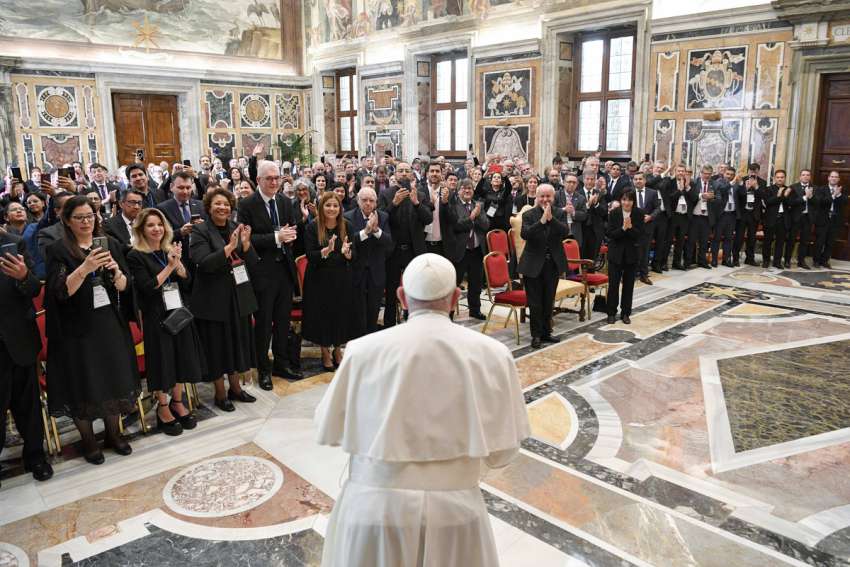VATICAN CITY -- Pope Francis said the title of his new letter on the environment will be "Laudate Deum," (Praise God), a frequent refrain in several psalms, including Psalm 148, which tells the heavens and the angels and the sun and moon to praise the Lord.
The new document, expected to be released Oct. 4, is what the pope has described as a follow-up to his 2015 encyclical "Laudato Si', On Care for Our Common Home."
Pope Francis revealed the title of the new document during a meeting Sept. 21 at the Vatican with rectors of Catholic and public universities from throughout Latin America and the Caribbean. He did not have a prepared text for the audience, but instead responded to questions. Vatican News in Spanish published a summary of his responses late Sept. 25.
The new document, he said, is "a look at what has happened" since 2015 and a look at what still "needs to be done."
The world is facing "a process of environmental degradation," he said, but it is a problem that impacts much more than nature. It "leads down to the bottom of the ravine: Degradation of living conditions, degradation of the values that justify these living conditions, because they go together," with some people believing they are entitled to exploit natural resources and completely ignore the impact on the poor and Indigenous people.
The extraction industry, for example, has players who have moved into "extractivism," that is, the hoarding of natural resources.
But it is never just a "geological extractivist model," he said. Those who think they have a right to remove whatever they find in the ground also follow a "human extractivist model" where the dignity of the local people "is extracted, they are slaves."
The "throwaway culture" and the "culture of abandonment" are tied, he said. "The discarded, the outcasts, are men and women, whole peoples who we leave on the street like garbage, are they not? We have to be aware that we use the wealth of nature only for small groups through socio-economic theories that do not integrate nature, the discarded."


